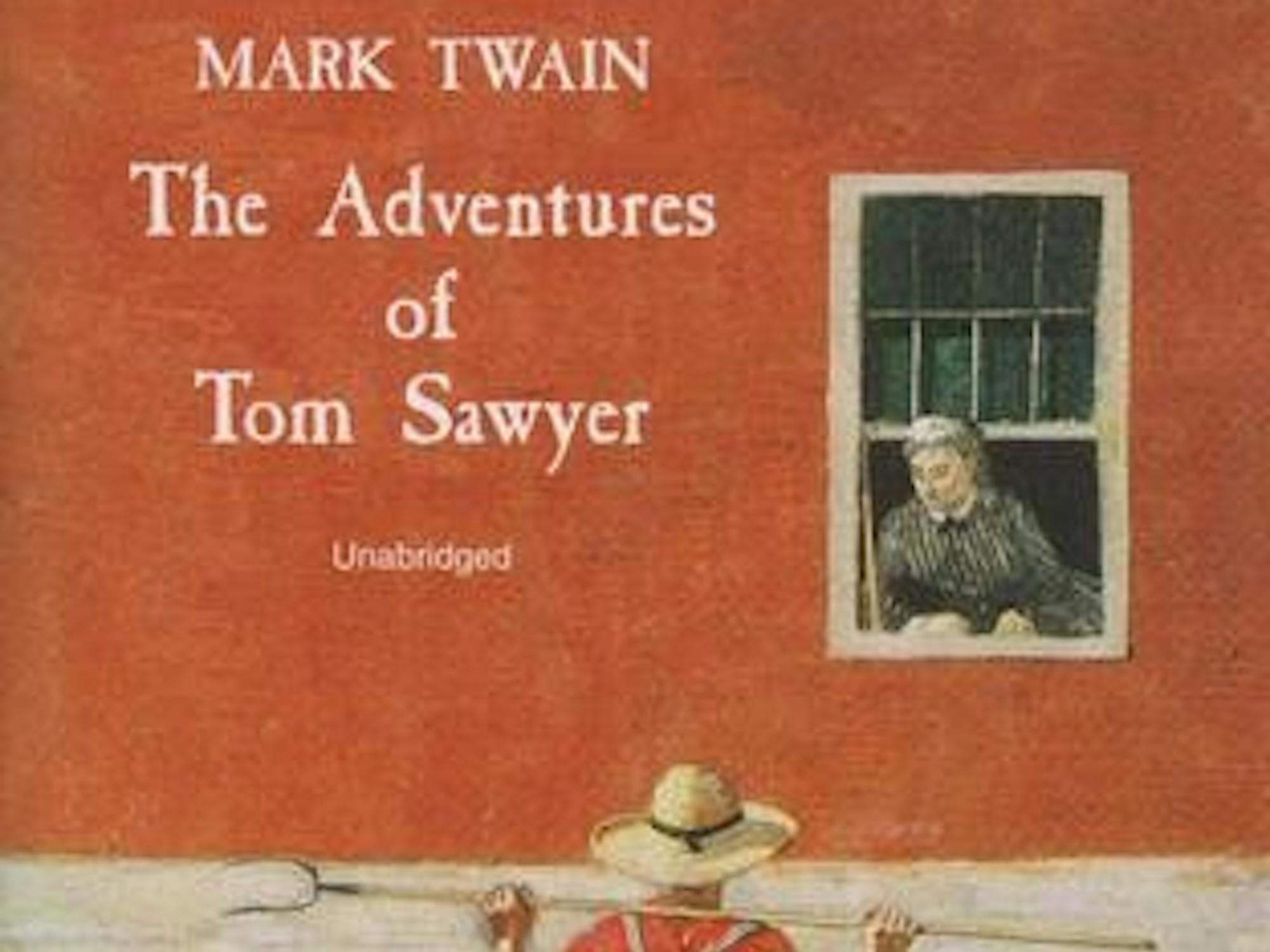Is classic literature relevant in today’s world? Yes. How are we to perceive the evolution of contemporary pieces if we are unable to accept, understand and appreciate their great-great-grandparents? Is classic literature relevant to a twenty-something college student in today’s world? Yes begets yes, begets yes.
Even if you’ve never read Mark Twain’s “The Adventures of Tom Sawyer,” it’s almost guaranteed you’ve been touched by one of his legendary shenanigans. For example, the white-washing episode (this is probably my favorite of Tom’s adventures) is a well-known and well-played strike of manipulation. One cannot help but admire the youngster, who managed to convince several (not just one) boys to paint his aunt’s fence. Meanwhile, they have surrendered everything in their pockets to Tom just for the chance to wield the paint brush.
And Tom? Well, he just stands aside, counting the booty he collected and laughing quietly at his genius.
Another notorious childhood caper that Twain illustrates is under-aged treasure hunting. Tom and a pal spend endless hours with rusted spades and glistening hope, just to come up empty handed time after time. Until, with a stroke of luck, they stumble upon the elusive fortune. This scenario is reborn in some of today’s (and yesterday’s) children’s films. A few examples are “Holes” with Shia LaBeouf, “Gold Diggers: The Secret of Bear Mountain” with Christina Ricci and “The Goonies” with Josh Brolin, a collection of movies of which I’m sure every current student has seen at least one of, if not all.
To be honest, the premise of “Tom Sawyer” is ridiculously simple: An orphan boy gets into an abundance of trouble and is magically saved each time. Honestly, I expected more from a classic novel that has repeatedly teased the salivary glands of literary critics. It brings to mind a more contemporary classic about an orphan boy who gets into an abundance of trouble and is magically saved each time; drool is wiped off chins for this one too. However, the difference between Harry Potter and Tom Sawyer (besides an obvious muggle handicap on the latter’s side) is Tom has
Twain’s enchanting turn of phrase to back him up.
Where the plot sometimes failed to hold my attention, the language succeeded brilliantly. Twain’s wit is like that delicious punch in a masochist’s gut. He has an impressive way of capturing the frivolity of youth in convoluted, yet poetic sentences. An example of this can be found in the beginning paragraph of Chapter 6 when Tom is lamenting about the demise of the weekend:
“Monday morning found Tom Sawyer miserable. Monday morning always found him so—because it began another week’s slow suffering in school. He generally began that day with wishing he had had no intervening holiday, it made the going into captivity and fetters again so much more odious.”
Twain could have easily told the reader Tom didn’t like school, but that wouldn’t have been quite as interesting or as verbose. By extending the statement, the author drives home this boy’s particular distaste for class. Also, he lends a certain we-were-all-grade-school-children-once empathy when he describes “captivity and fetters.” There’s a reason God invented TGIF.
There is another passage I especially love, the first encounter with the “juvenile pariah of the village” Huckleberry Finn. Huck is a loveable scamp, admired by his same sex peers, but looked down on by anyone with the slightest bit of responsibility (i.e. adults), and he just happens to be Tom’s best friend. In this scene, Tom inquires about the acquisition of a coveted prize item of Huck’s.
“What’s that you got?”
“Dead cat.”
“Lemme see him, Huck. My, he’s pretty stiff. Where’d you get him?”
“Bought him off’n a boy.”
“What did you give?”
“I give a blue ticket and a bladder that I got at the slaughterhouse.”
“Where’d you get the blue ticket?”
What tickles me here is the complete disregard for morbidity.During their nonchalant conversation about dead cats and bladders, the only real concern that comes up is how Huck obtained a blue ticket (A children’s prize for reciting two bible scriptures during Sunday school), as the ruffian never attended church. Personally, I’m curious how a single-digit aged boy was able to walk away with a body organ. But that’s just me.
Besides a few incomparable scenes, like the white-washing episode mentioned earlier, “The Adventures of Tom Sawyer” is more or less just a fun, trite rite of passage; a staple in every bibliophile’s collection. What sets it apart from other cookie-cutter classics, however, is the good-humored snark, as if the entire novel is tongue-in-cheek. I can’t help but get the feeling that Twain had as good a time writing this book as I had reading it.










